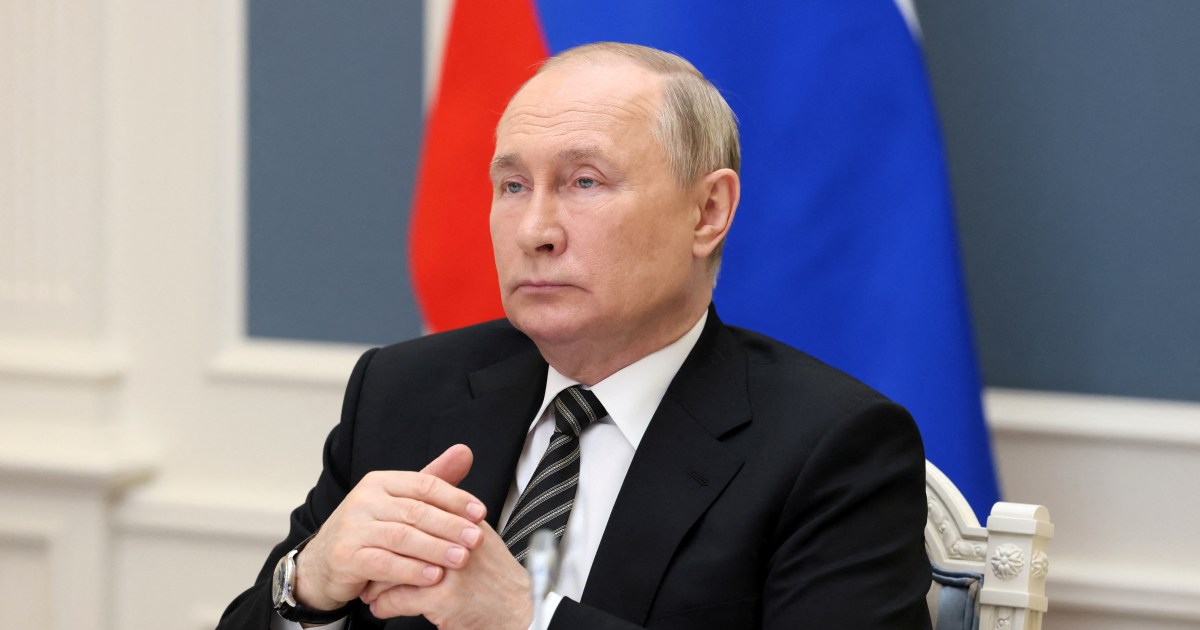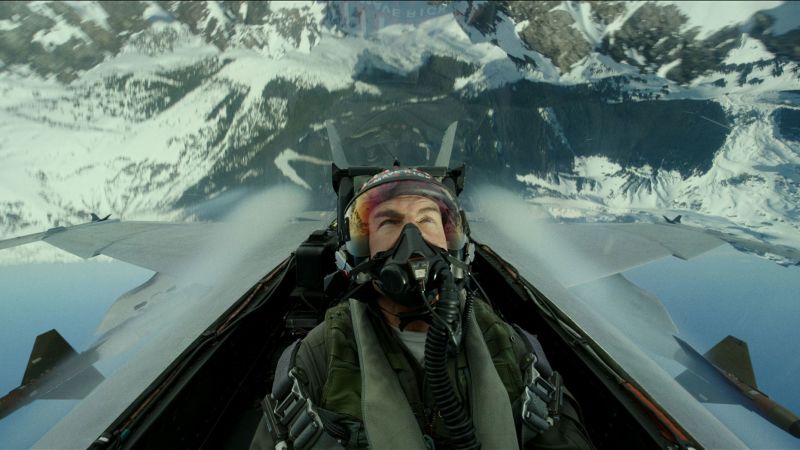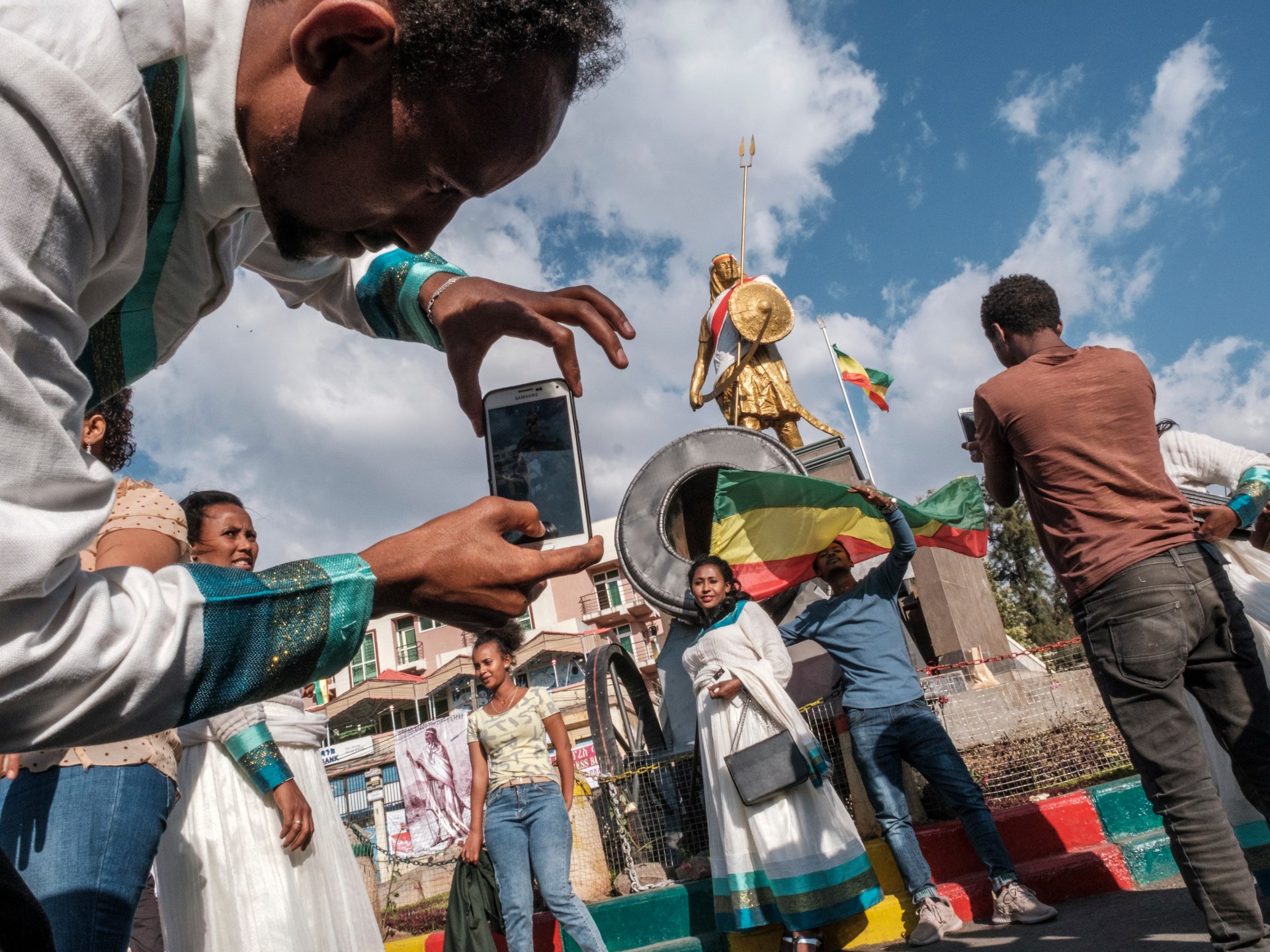Shangri-La Dialogue: Delegates meet amid security challenges
The Shangri-La Dialogue (SLD), the key security meeting in the Asia Pacific, gets under way in Singapore later on Friday with discussions expected to focus on Russia’s invasion of Ukraine, US-China tensions, and the Myanmar crisis.
It will be the first meeting of the SLD, named for the Singapore hotel where it takes place and organised by the British think-tank the International Institute for Strategic Studies (IISS), since the pandemic struck.
About 500 delegates from more than 40 countries are expected, with Japanese Prime Minister Fumio Kishida scheduled to give the opening address where he will reportedly outline Japan’s vision for regional security.
“Over the years, the SLD has provided a valuable, open, and neutral platform for the exchange of perspectives on defence and security issues and initiatives,” Singapore’s ministry of defence said in a statement ahead of the forum on Thursday.
Who are the key speakers?
Kishida, who speaks at 8pm (12:00 GMT) on Friday, will be the first Japanese prime minister to speak at the SLD since 2014.
The keynote address “will provide an important statement on Japan’s changing strategic outlook, the regional repercussions of the war in Ukraine, and the best way to manage the Asia-Pacific’s many pressing security challenges,” James Crabtree, executive director of IISS–Asia said in a statement.
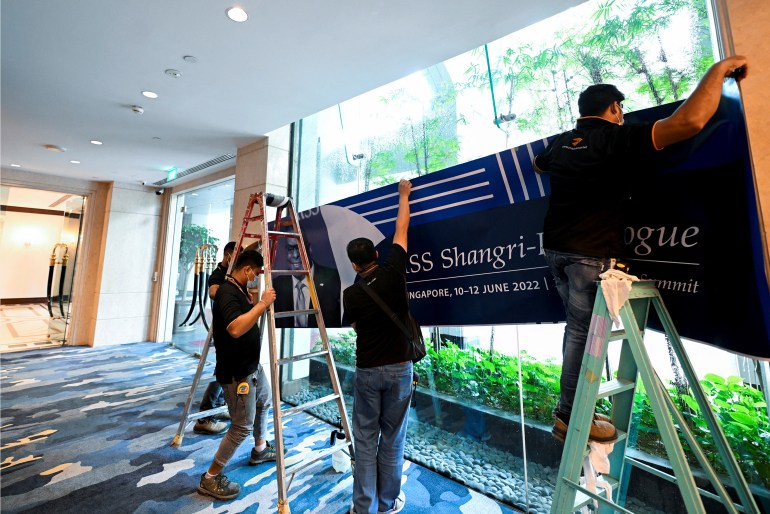
NHK, Japan’s public broadcaster, said earlier this month that Kishida was “expected to pledge an announcement of a concrete plan by next spring to facilitate a free and open Indo-Pacific region.”
It added: “Kishida is likely to reiterate his intention to drastically strengthen Japan’s defence capabilities and further bolster the Japan-US alliance’s deterrence and response capabilities.”
The next big hitter to take the stage will be Lloyd Austin, United States defence secretary, who is scheduled to speak on Saturday morning at 8.30am (00:30 GMT). His speech has been described as a “major policy speech on US defence policy in the Indo-Pacific”.
On Sunday, Wei Fenghe, China’s defence minister, will give his address at 8.35am (00:35 GMT) and “discuss China’s vision for regional order in the Asia-Pacific”.
Both men have been allocated 55 minutes.
What else is on the agenda?
Among the other prominent speakers, Ukraine’s President Volodymyr Zelenskyy will address the forum via video link on June 11 at 4pm (08:00 GMT). His deputy foreign minister, Dmytro Senik, is due to attend in person.
The SLD is convening more than three months after Russia invaded Ukraine, and amid fierce battles in the east.
Zelenskyy has addressed several parliaments and forums around the world about the attack on his country including in the Asia Pacific.
IISS Director General John Chipman says Zelenskyy will be “showing the links” between strategic theatres in Europe and the Indo-Pacific.
There will also be a session on the situation in Myanmar, where the military seized power from the elected government in February 2021 and has since sought to stamp out all resistance to its rule. Among the speakers will be the United Nations Secretary General’s Special Envoy on Myanmar Noeleen Heyzer and Malaysian Foreign Minister Saifuddin Abdullah.
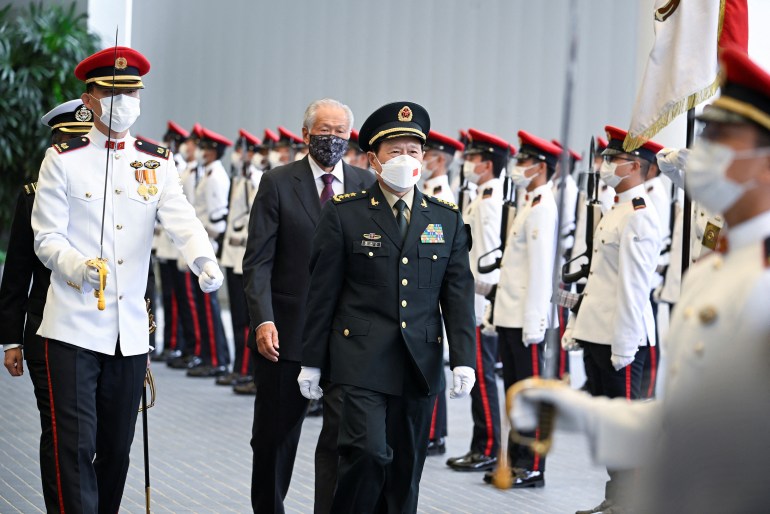
What are the key security issues on decision-makers’ minds?
The SLD convenes not only against the backdrop of war in eastern Europe – where Beijing has avoided any outright condemnation of Russian aggression – but amid simmering tensions in the Asia Pacific.
North Korea has conducted a record number of missile tests this year and there are concerns it is preparing for its first nuclear test since 2017.
Then there is the disputed South China Sea, and China’s posturing over Taiwan, the self-ruled island it claims as its own.
China has been alarmed by increasing cooperation between the US and its allies in the Asia Pacific, condemning the AUKUS pact under which Australia is due to acquire US nuclear-powered submarines, as well as the so-called Quad. Japan’s tougher line on defence has also upset Beijing.
On Friday, the Global Times, China’s state-run tabloid, gave a sense of Beijing’s anger about a more assertive Japan with a highly critical editorial on Kishida’s likely address to the SLD.
“Kishida’s role in this year’s Shangri-La Dialogue cannot be more evident – fanning the flames on the platform, misleading the agenda, making excuses for its future increase of military spending and coordinating with the US to expand the latter’s gang in the region under the framework of the ‘Indo-Pacific Strategy’,” it said.
Wheels down in Singapore for the Shangri-La Dialogue. I’m looking forward to further strengthening our alliances and partnerships in the Indo-Pacific, while advancing the region’s shared vision for peace and security. pic.twitter.com/eDVoOfShV1
— Secretary of Defense Lloyd J. Austin III (@SecDef) June 9, 2022
China’s own activities in the region have also raised alarm with Australia concerned about its security initiatives in the Pacific Islands. Fiji and the Solomon Islands, with which China said it signed a security pact in April, will both participate in the forum for the first time, according to IISS.
“The Indo-Pacific is in the midst of the most consequential strategic alignment of our time,” Australia’s newly-appointed Defence Minister Richard Marles said in a statement on Thursday before leaving for Singapore. “I welcome the role this Dialogue plays in shaping robust conversation on strategic challenges and regional security dynamics.”
What is happening on the sidelines?
A key part of the in-person SLD is the opportunity for ministers and officials to hold discussions on the event’s sidelines.
One of the more closely-watched bilaterals is likely to be a meeting between Austin and Wei with the two countries’ top defence officials expected to hold their first-ever face-to-face meeting.
The relationship between the US and China has deteriorated since the last SLD in 2019 amid recriminations over a range of issues from the origins of the coronavirus, to China’s crackdowns in Xinjiang and Hong Kong, its South China Sea claims and Taiwan.
However, there are also issues, such as North Korea, where the two could work together. Denuclearisation talks with Pyongyang have been stalled since the collapse of the Hanoi summit between North Korean leader Kim Jong Un and then US President Donald Trump in 2019.
“We expect, from our perspective, the substance of that meeting to be focused on managing competition in regional and global issues,” a senior US official told the Reuters news agency.
“We are making every effort to ensure that it is a professional, substantive meeting and we are going to be talking about some very serious issues, but no desire on the part of the United States to make a public spectacle.”
This is why #ShangriLaDialogue is such a brilliant idea.
Big powers, & other adversaries, can find it hard to talk. Who moves first/where/ etc etc
So a neutral forum like #SLD22 is a great opportunity.
Needed more than ever now, as skies darken.— Aidan Foster-Carter (@fcaidan) June 9, 2022
Cambodian Defence Minister Tea Banh will also be at the forum and is expected to meet Austin and other officials amid renewed concern about China’s activities at the Ream naval base on Cambodia’s southern coast, according to Singapore’s Straits Times newspaper.
A trilateral between Austin, Japanese Defence Minister Kishi Nobuo and South Korean Defence Minister Lee Jong-sup is also scheduled, according to Japan’s public broadcaster NHK, with the focus on cooperation over North Korea.
Kishi also plans to meet China’s Wei to “register Japan’s concerns about China’s growing maritime assertiveness, and to urge Beijing to exercise restraint”, NHK reported.

